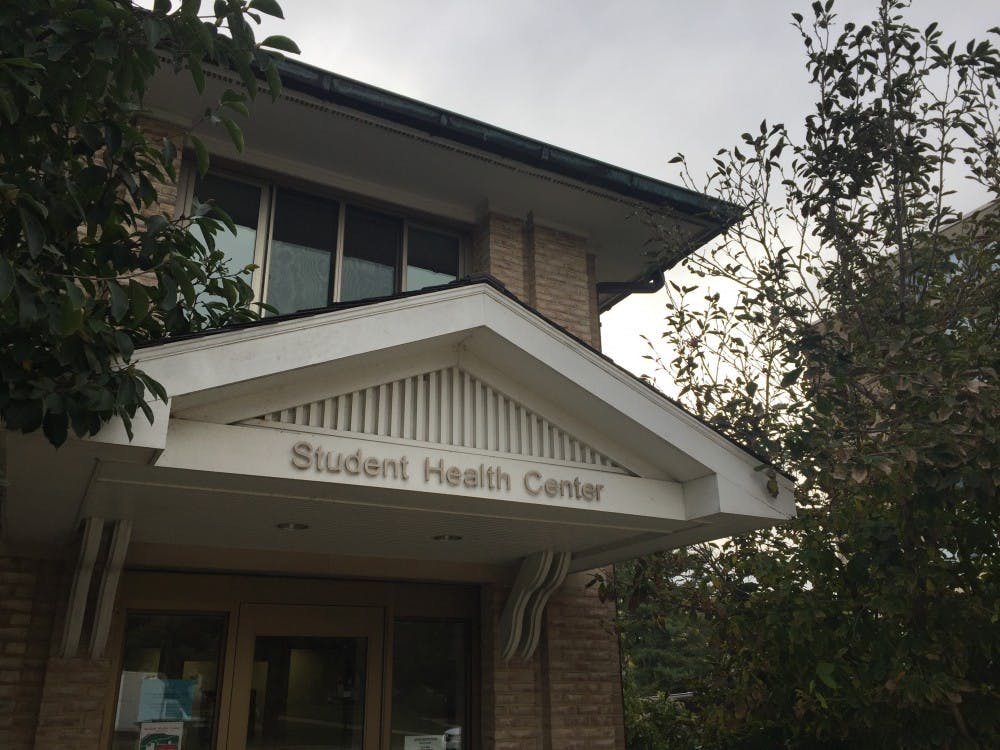The Office of Campus life sent an email to students on Sunday with data regarding missed Counseling Center appointments to address concerns over mental health care. Despite student outcry, the administration stands by the email.
In the email, Vice President of Campus Life and Inclusive Excellence Fanta Aw referred to an increase in missed appointments as a “troubling trend” that affects access for others, noting that about 20 percent of appointments made this fall were missed.
“We ask that students please be mindful of the realities of scheduling and the needs of others by keeping appointments and providing notification well in advance if an appointment can’t be kept,” Aw said. “We understand this can sometimes be difficult, but it’s important.”
Students reacted online by taking to Twitter, Facebook, blogs and the AU meme page. Many said that the email was tone deaf to students' concerns and issues with counseling services. AU College Democrats issued a statement on Monday.
“When you place the burden on people struggling with mental health problems rather than advocating for a system that supports us, you put our lives in danger,” AU Dems said in a statement. “By blaming people with mental illness for their struggles, rather than a system that forces someone to wait weeks in order to see a medical professional on campus, we perpetuate the struggles and stigma that people in need of mental health services live with every day.”
AU Dems President Julia Larkin and Vice President Emily Coneybeare said that after reading the email, they immediately decided to draft the statement, calling for the University to apologize. They said that it’s not the counselors who are at fault, but the issues that lay within the system itself.
“The University should have addressed the underlying issues as to why students miss appointments, rather than just sending out the data,” Larkin said in an interview with The Eagle. “I don't see how anyone can feel comfortable making any appointment now.”
Coneybeare, who mentioned that she used AU’s counseling facilities said, “What it showed me was a real disconnect for the administration understanding the realities of mental health issues.”
Aw stood by her original statement in an interview with The Eagle, saying that the data was a necessary part of a larger conversation. She said that she rejected the idea that this was victim blaming.
“One of the things they can help us with is that we’re seeing an increasing number of no shows and cancellations, and that really impacts the system and access and we’re seeking their help and assistance,” Aw said.
AU senior Jackie Droesch told The Eagle she used many of AU’s mental health facilities including the Counseling Center and the psychiatric nurse practitioner. She said each service failed her.
“They didn’t do anything to help us and put it back on students who are struggling and at a vulnerable point in their life,” Droesch said.
Assistant Vice President of Campus Life Traci Callandrillo–who has a Ph.D. in counseling psychology–noted that the issue is a complex one.
“We don’t say we’re just going to implement one thing and that will fix it or we’re going to tell students to cancel their appointments if they’re not going to use them and that will fix it,” Callandrillo said. “It’s a much broader picture and we all need to be together in that conversation.”
Other students including AU Student Government members have joined the conversation, noting that the tone and content of the email did not address students wider concerns about mental health on campus.
AUSG President Angela Chen said that the email “missed the mark” and created an anonymous form for students to share their thoughts. The speaker of the Undergraduate Senate Jeremy Ward announced the creation of the Mental Health Committee within the Undergraduate Senate, in reaction to the email.
Callandrillo discussed AU’s unique challenges in addressing mental health, particularly while students are immersed in the highly ambitious D.C. culture.
“How do I ask you all to be real people who’s worth is not based on this external thing,” said Callandrillo. “It kind of runs counter to some of the expectations that college can have in general, but for AU students is even more pointed.”'
The University was previously criticized by students for exacerbating these issues and failing to fully acknowledge their role in addressing mental health. In 2018, President Sylvia Burwell sparked controversy after publishing an article titled “Generation Stress”.
Aw and Callandrillo noted the additions made to the Counseling Center in the past few years, including a new case manager, another staff clinician and an after-hours telephone counseling service.
“We are continuing to assess what the needs are and how we can meet them, is there more that needs to be done? Absolutely, but we have got to work together to arrive at solutions,” Aw said.





